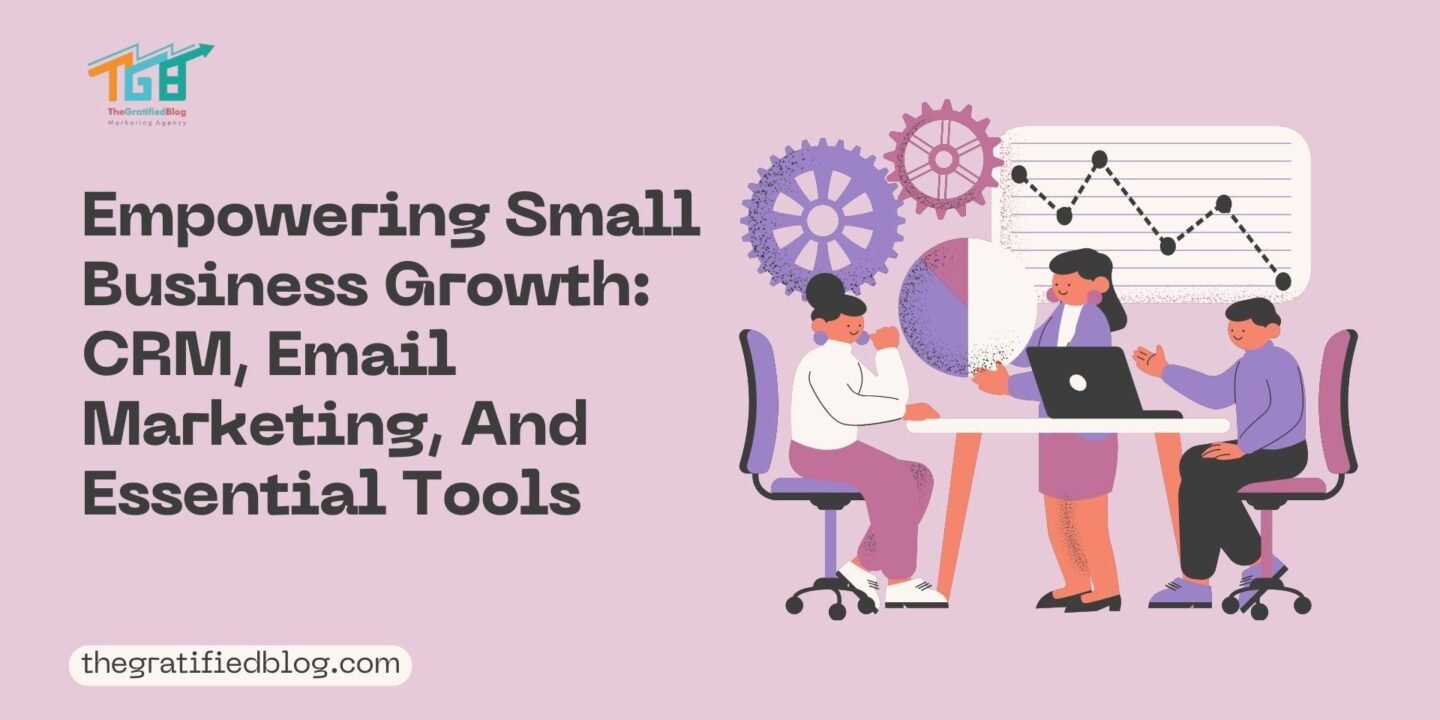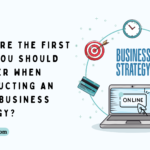
In today’s constantly changing business world, startups are pillars of new, prominent ideas and innovation. They act as the basis of economies, bringing change, providing employment opportunities, and establishing communities worldwide. Yet, modern commerce’s constantly increasing competition and complexities can become challenging for small businesses, often having limited financial resources and tools. However, marketing solutions such as CRM and email marketing tools come to the rescue. They serve as a means to gather all customer data into a single database, nurture leads, maintain good relationships with customers, and ensure a seamless customer experience at a low cost.
Let’s start with exploring the pros your business can reap after integrating email marketing and customer data from your CRM.
The Importance Of Email Marketing And CRM Integration

Email marketing and CRM carry several pros for startups striving to streamline their marketing efforts and boost customer engagement. Below, you can find some more reasons to consider email marketing and CRM for small businesses:
- Higher personalisation. Company owners can develop targeted, relevant, and personalised email campaigns by incorporating CRM data with email marketing software. Marketers can use demographics, purchase history, browsing behaviour, and interactions to reach this goal. This way, brands send relevant campaigns that resonate with their audiences, increasing customer engagement and conversions.
- Audience segmentation. With CRM data, marketers can more effectively segment their email lists. This integration enables small companies to create audience segments based on different criteria such as customer preferences, buying behaviour, location, or stage in the sales cycle. It results in timely messages containing information prospects and clients are interested in.
- Effective lead nurturing. While effectively integrating CRM and email marketing solutions, company owners can automate their lead-nurturing processes. They can do it by sending out automated email campaigns triggered by specific user actions in the CRM system, including site visits, lead scoring, form submissions, or other actions. CRM ensures that all prospects get relevant content immediately, encouraging them to perform the desired action and boost conversions.
- Higher customer retention. Utilising customer data from CRM in email campaigns allows small companies to keep in touch with existing customers, provide timely offers, encourage them to engage, and initiate repeat purchases. Marketers can send personalised offers, product recommendations, and loyalty rewards tailored to each customer’s needs and past purchase history. Besides strengthening relationships with existing customers, this strategy will shortly contribute to higher brand loyalty.
- Seamless cross-department communication. When integrating CRM with bulk email service, marketers ensure customer data is synchronised in real-time between the two platforms. This dramatically helps sales and marketing teams by allowing them to access the most up-to-date customer information when creating and sending email campaigns. It contributes to brand consistency by reducing the number of conflicting or outdated messages and unified communication between company reps and customers across all communication channels.
Let’s proceed to the next section to determine the right CRM and email marketing service. We’ll provide some tips that might become a perfect solution for your company.
How To Choose The Right CRM And Email Marketing Tools?

Finding the right CRM and email marketing tools is crucial for small businesses to manage customer relationships and drive marketing initiatives effectively. Here are some essential steps for making the right choice.
- Outline your business needs. The first step in choosing the right CRM and bulk email service is identifying your company’s needs, requirements, and goals. When doing this, consider the following factors: business size, budget, and desired features. Make a list of features you need for CRM and email marketing services to find solutions that meet your needs and will help you streamline your marketing and sales efforts.
- Explore available platforms. Consider conducting detailed research on available CRM and email marketing platforms within the market. When doing this, pay closer attention to those services that meet your company’s requirements and are designed for small businesses. While exploring these platforms, consider factors such as user reviews, ratings, industry accolades, and case studies to evaluate the relevance and suitability of each service.
- Unveil all the essential features. Once you compile a list of tools that might suit your purpose, consider comparing the features and functionality of different CRM and email marketing platforms against your requirements. Remember the essential features every CRM and email marketing solution should have: contact management, lead scoring, pipeline management, email automation, segmentation capabilities, reporting and analytics, and integrations. Look for the tools that offer these features, helping you streamline your operations and attain your marketing and sales goals.
- Consider a platform that offers other essential marketing tools. The best way to prepare for your company’s growth is to choose a multichannel solution like ActiveCampaign or many of its alternatives, which offer various channels for customer support, promotion, and sales. For example, take SendPulse, this platform allows you to create chatbots, web push notifications, live chat, pop-ups, and CRM with email marketing automation. All these tools will help your startup reach goals faster without paying high costs.
- Check for the necessary integrations. The next crucial point you need to consider in your future CRM and email marketing platform is the variety of integrations they offer. You should ensure that the platforms you choose have seamless integration capabilities with the services you might need for further work, like AgileForms, Zapier, Shopify, Salesforce, etc. So, to avoid additional costs for integrations, find out whether the services you select integrate with essential business applications, including accounting software, e-commerce platforms, and marketing automation tools. It will help you provide smooth data flow between systems and boost productivity.
- Evaluate the platform’s flexibility for potential business growth. When choosing the right platforms for your marketing needs, assessing the scalability and flexibility of the CRM and email marketing tools is essential, ensuring seamless business growth and increasing demands. If you want to prevent switching from one service to another, it’s advisable to pay closer attention to the tools able to scale with your company and adapt to changing requirements over time. So, when looking through the available options, consider factors such as user scalability, customisation options, add-on features, and pricing plans, ensuring long-term usage.
- Find out whether the service is easy to use. When you are just starting your business or don’t have experience using CRM and email marketing services, it’s essential to focus on CRM and email marketing tools that are intuitive and easy to use. Moreover, the learning curve associated with each service should be considered, and the quality of training resources, tutorials, and customer support should be assessed. Select platforms offering comprehensive training and support to ensure fast team onboarding and high productivity.
- Choose a solution based on your budget. When choosing CRM and email marketing for small businesses, you must consider one more crucial factor—your company budget. Explore all the available options in detail, including pricing plans, subscription models, and pricing structures various platforms provide. Ensure your chosen services have competitive pricing while considering their features, support, and scalability.
- Look through customer reviews and recommendations. Customer reviews and recommendations are another source of information for identifying the right solutions for your small business. Recommendations and references from trusted sources involving industry peers, business associates, and online communities can serve you as a hint in choosing the right platforms. Insights from small businesses using particular CRMs and email marketing services will help you make a well-informed decision when identifying good CRM and bulk email service. You can find the reviews on Google or ask for recommendations from your entrepreneur friends who already have experience with specific platforms. Once you gather all the information about various tools, use their feedback when making your decision.
By following this step-by-step guide, you can make well-informed decisions about CRM and email marketing tools for your small business. These tools will allow you to establish good customer relationships, provide customers with relevant offers and promotions, streamline sales processes, and increase conversions.
Wrapping Up
In summary, integrating CRM, email marketing, and other tools like chatbots, live chat, and web push notifications is robust support behind the growth and success of small businesses in an increasingly competitive environment. These tools empower businesses to collect all customer data in one place, improve communication, and optimise the company’s operational processes, fostering more sales, business growth, and higher revenues.
By bringing technology into your small business, you can achieve short-term and long-term business goals faster and at a lower cost. Our recommendations will help you identify your perfect match and improve your email marketing strategy for stronger customer relationships.








No Comments